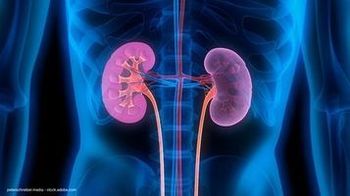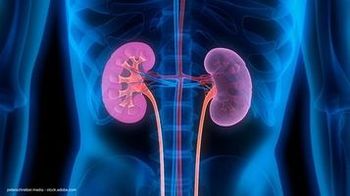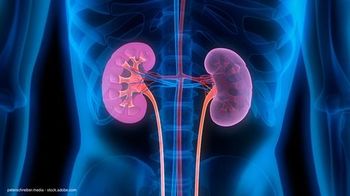
RCC treatment-related hypertension may be marker for efficacy
A retrospective, exploratory analysis of prospective clinical trials showed treatment-related hypertension was associated with significantly greater progression-free survival and overall survival in patients with metastatic renal cell carcinoma treated with sunitinib (Sutent), researchers reported at the 2010 Genitourinary Cancers Symposium in San Francisco.
A retrospective, exploratory analysis of prospective clinical trials showed treatment-related hypertension was associated with significantly greater progression-free survival and overall survival in patients with metastatic renal cell carcinoma treated with sunitinib (Sutent), researchers reported at the 2010 Genitourinary Cancers Symposium in San Francisco.
In the analysis, hypertension was defined (in separate analyses) by maximum systolic blood pressure (SBP) ≥140 mmHg or by maximum diastolic blood pressure (DBP) ≥90 mmHg.
Progression-free survival in patients with a maximum SBP ≥140 mmHg (441 patients) was 12.5 months compared with 2.5 months in patients with a SBP pp
In addition, progression-free survival in patients with a maximum DBP ≥90 mmHg (362 patients) was 13.4 months compared with 5.3 months in patients with a DBP pp
The incidence of hypertension-associated adverse events was low and similar between patients with and without hypertension. Patients with hypertension experienced slightly more renal adverse events (5% any grade; 2% grade 3/4) than patients without hypertension (3% any grade; 1% grade 3/4), which were generally tolerable and manageable.
"The data suggests hypertension associated with Sutent treatment can be a biomarker for anti-tumor efficacy in these patients," said lead investigator Brian Rini, MD, of Cleveland Clinic’s Taussig Cancer Institute. "Hypertension, which can be managed, is commonly associated with VEGF inhibitors, and this study is an important contributor to the growing body of knowledge about how best to treat advanced RCC."
Newsletter
Stay current with the latest urology news and practice-changing insights — sign up now for the essential updates every urologist needs.





